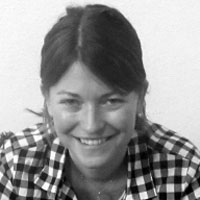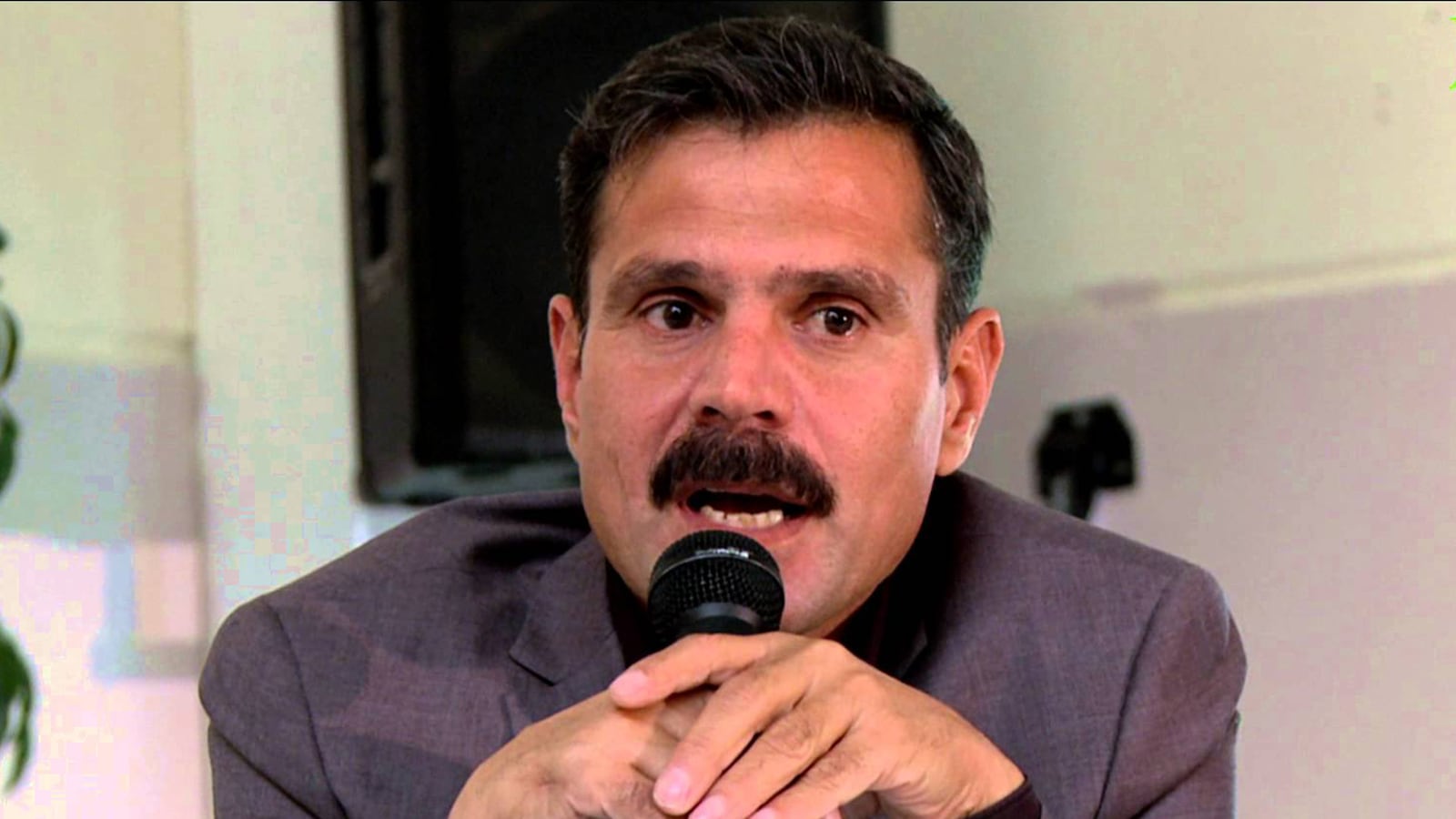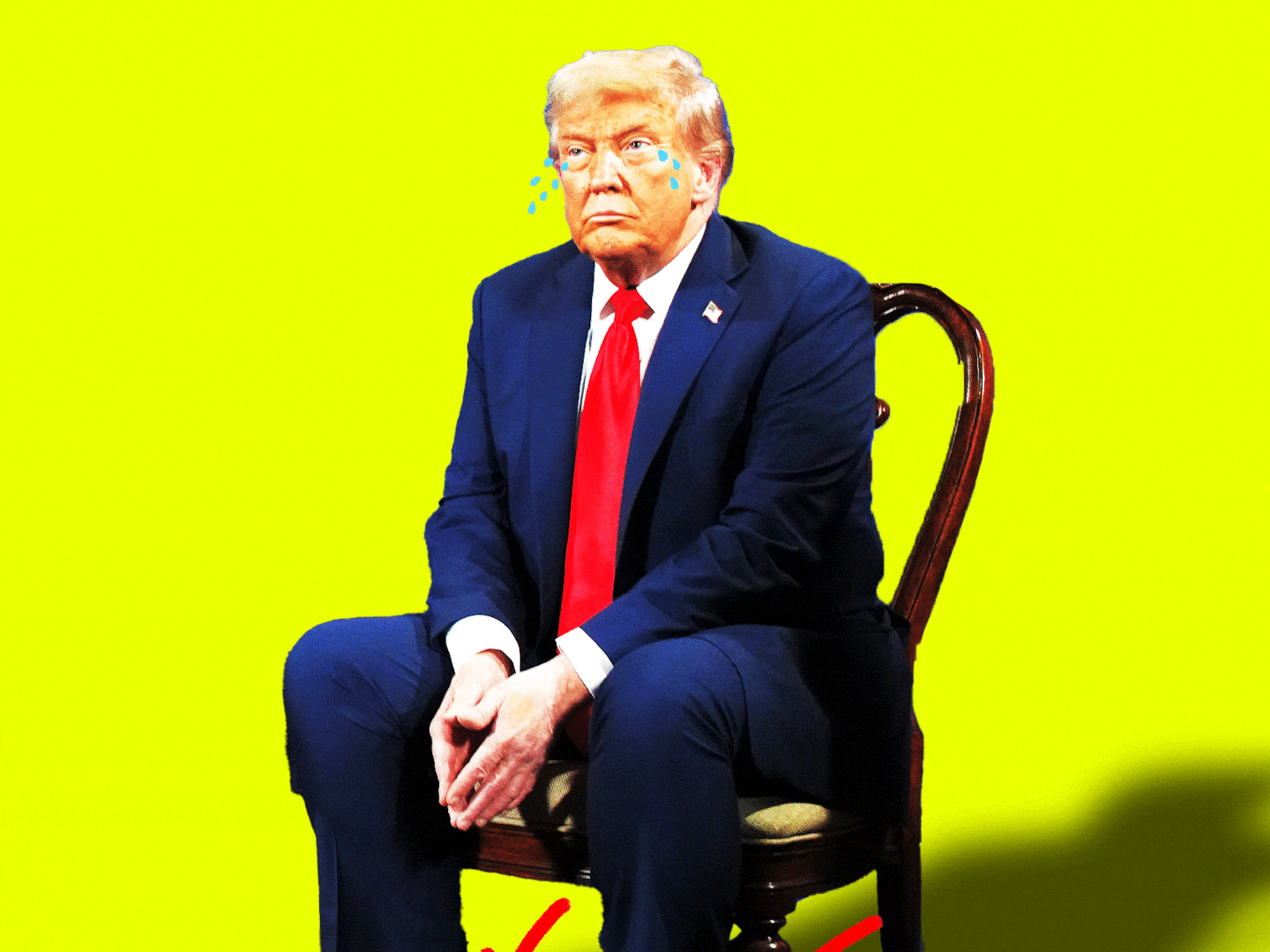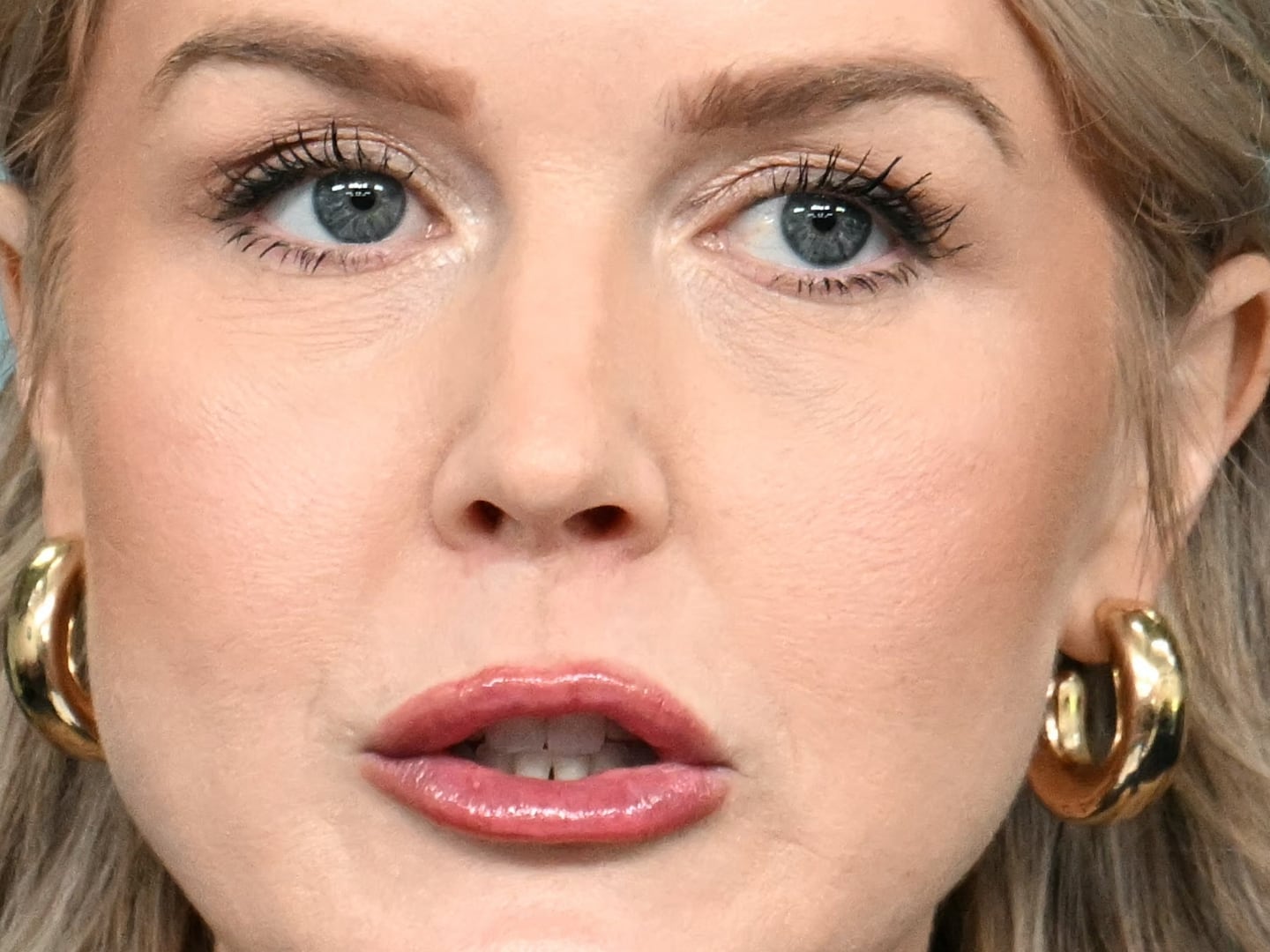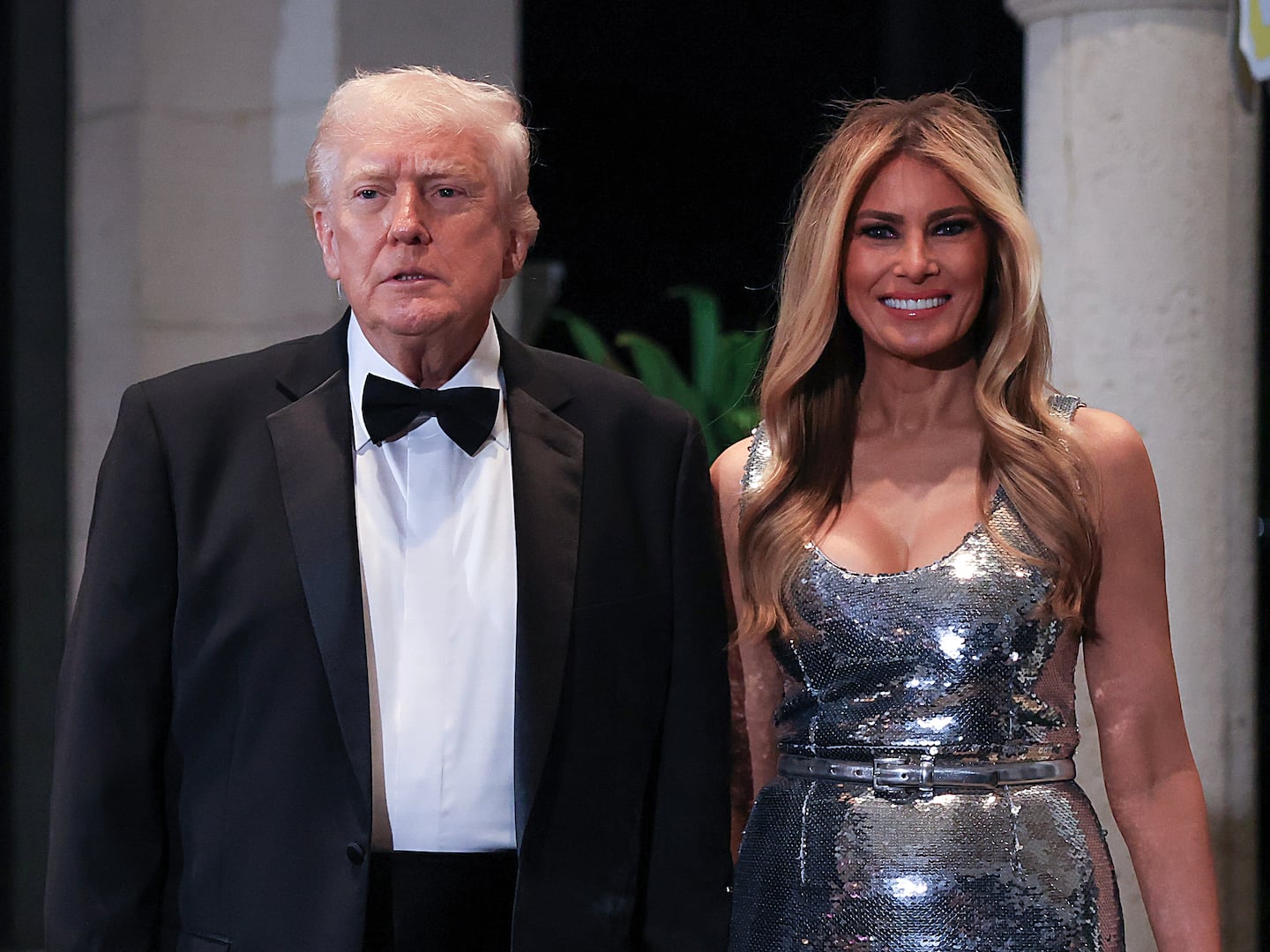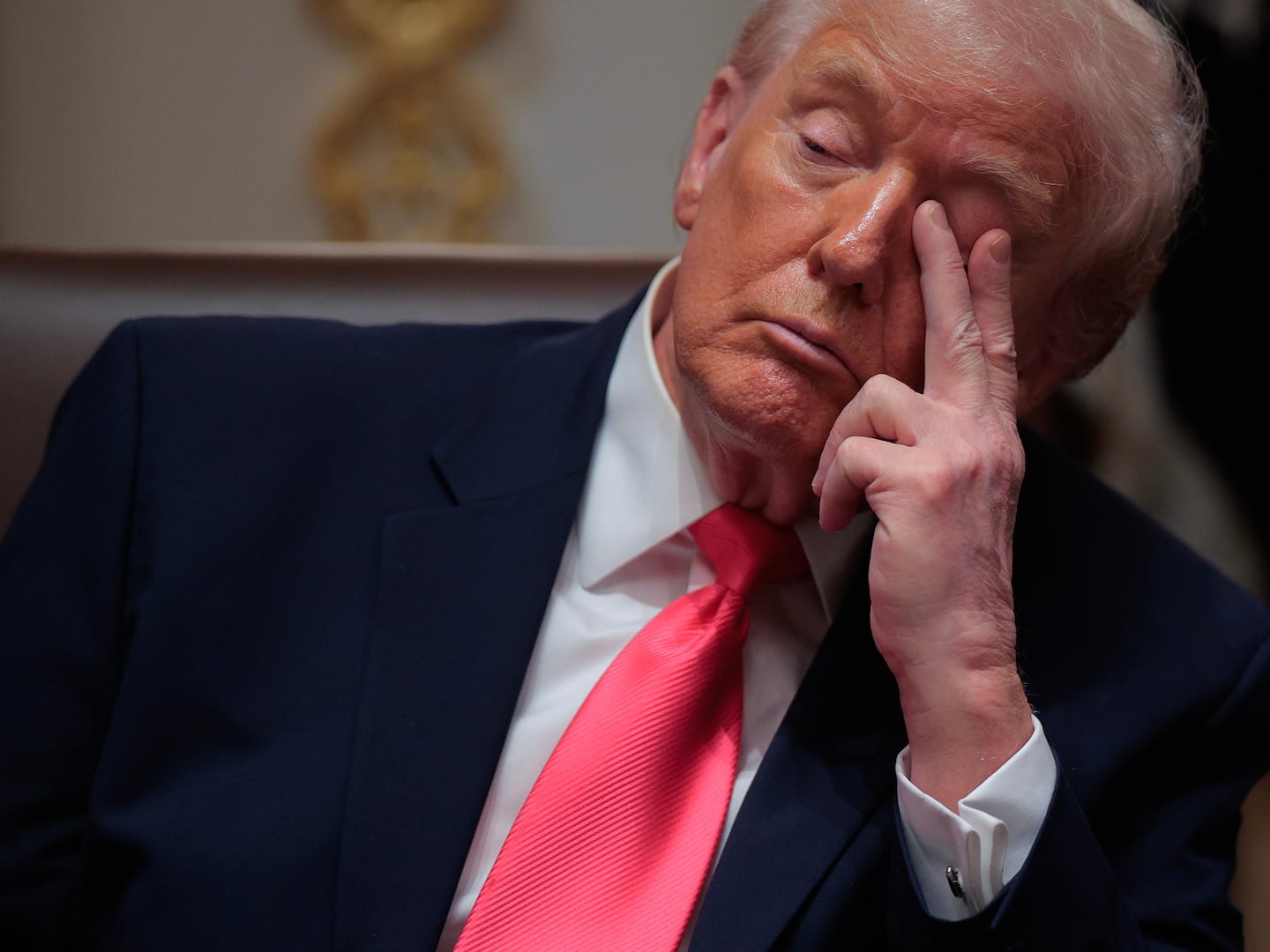ARBAT, Iraq—Minutes before Haydar Shesho arrived at this camp for displaced Yazidis, a stream of men, women and children marched down the dirt road that runs between the tents carrying flags with a sun and a red stripe. “All Yazidis are Haydar Shesho,” they chanted, laughing. “Shingal nameri,’ they shouted: Sinjar will never die.
It was the brutal conquest of their native region by the so-called Islamic State last summer that forced them from their homes, slaughtered and enslaved their relatives, and eventually became one major reason the United States got involved in a war in Iraq once again. But the Yazidis, while they’re happy for the help, are looking for one of their own to be their savior. “Haydar Shesho comes from us,” they say.
When he arrived with a small entourage, the chanting grew louder. A Yazidi flag was draped over his shoulders like a cloak, and, indeed, he is a kind of caped super-hero for Sinjar, one who swooped in from Germany when the regular police and military couldn’t rid the city of monsters and criminals. In the months since, he has built up a militia known as the Heza Parastin Shingal (HPS) or Protection Forces of Sinjar.
By the time Shesho arrived, the celebrants had arranged themselves in a circle; he made his way around, greeting each one with a handshake and traditional kiss on both cheeks, as if they were all relatives. Yazidis say that after all the suffering of the last year, the survivors think of each other as family, and they say they will never trust anyone else to protect or rule them again.
But there are many in the Kurdistan Regional Government who, for their part, do not trust Shesho at all. On April 5, the security forces from the dominant Kurdistan Democratic Party arrested him for running what it claimed was an illegal militia.
After a week, he was released. But the incident showed just how fractured the fight against the putative Islamic State, widely known as ISIS, ISIL or Da’esh, has become.
Early last August, when the terrorist group first attacked the Yazidis around Sinjar, declaring them infidels, enslaving thousands of their women, girls, and little boys—and massacring their young men—the official military of the Kurdistan Regional Government, who are known as Peshmerga, withdrew from Sinjar on the first day of fighting.
The city of Sinjar fell quickly, as did almost all the villages in the district.
Four days later, on August 7, U.S. President Barack Obama authorized the first new U.S. military operations in Iraq since troops were withdrawn in 2011, and the commitment there has been growing ever since.
But the fighting on the ground around Sinjar has been left to a ragtag assemblage of brave Kurdish and Yazidi fighters that includes groups connected to the Turkish Kurdish PKK guerrilla army, which has long been listed as a terrorist group by the United States and the European Union. They took up positions on Mount Sinjar, which towers above the surrounding landscape, and managed to hold out there.
Within days, Haydar, several cousins and his uncle, Qassim, who had lived in the little German town of Bad Oeynhausen, for the most part, ever since they fled Saddam Hussein’s tyranny in 1990, returned to the Yazidi homeland to join the fight. And Haydar quickly emerged as a dynamic leader.
“When everyone ran away, Haydar came back,” said members of the HPS at their base in Sherfedin, a town located in the northeastern part of Mt. Sinjar.
The HPS started with only a handful of men and now counts more than 3,000. Its commanders say there would easily be 6,000 with logistical support, but they don’t have enough guns to arm the extra men now.
The HPS is the only indigenous, independent force in the district. Other Yazidi militias are affiliated with various Kurdish parties. “We fight only for Yazidis, not for any party,” said Haydar.
HPS fighters—ranging in age from teenagers to men well into their sixties and even seventies— are loyal to Haydar Shesho, to the HPS, to Shingal (Sinjar), to Yazidis and to the fight against ISIS.
Daoud Jndee, second in command to Haydar, likes to say his boss “has something, we call it rohi laho al fida’a,” an Arabic phrase meaning someone for whom you would give your soul or your life.
But in spite of— or upon closer look, because of— his heroic status and independence, Haydar Shesho is treated as a threat by the KDP, which is one of the key partners on the ground in the fight against ISIS and one of the two ruling parties of the Kurdistan Regional Government (KRG).
Indeed, the KDP leader and president of the regional government, Massoud Barzani, has been in Washington this week meeting with President Barack Obama and members of Congress.
The KDP say Haydar Shesho is no hero, and little more than a troublemaker —and an illegal one at that because his forces operate outside of the Ministry of Peshmerga.
Militias like Haydar’s interfere with the fight against ISIS because they divide the coalition and challenge Kurdish governing and security structures in the area, says Hemin Hawrami, a member of the KDP leadership council and head of the Foreign Office. “They are creating a force to weaken the Kurdish Regional Government in the area,” he said.
Haydar’s imprisonment was a KDP effort to re-consolidate total control of Sinjar at a time when efforts are underway to organize the liberation of nearby Mosul, the second largest city in Iraq.
But Yazidis think the KDP intends to reassert its own political and administrative power in their region, as if nothing had happened. Ater the breach of trust on August 3 last year—after the KDP’s fighters didn’t fight—that’s not going to happen. While there is still some remaining support for the KDP, and certainly desire to remain allied with the Kurds and the KRG, many Yazidis reject any thought that the Party can come back as before – the one and only ruling force – and they want more power for the previously marginalized Yazidi population. “Only Yazidis can rule Yazidis now,” says Haydar Shesho.
New actors like Haydar Shesho, who are from the community and who have won loyalty defending it, are determined to play a central role liberating and rebuilding Sinjar. And if the arrest did anything, it enhanced his status. He’s still the commander of the HPS, which still has its name, its flag and quasi independence as it fights, or tries to fight alongside the Peshmerga to liberate its city from ISIS.
But the political maneuvering goes on and on. Shesho and his followers do not want to answer to Peshmerga commanders who evanesced last August and, as the Yazidis see it, have done precious little fighting since. “They abandoned us once, they will do it again,” is a commonly held belief among Sinjar’s refugees.
So Shesho has gone around the KDP and the regional government, and sought support from Baghdad. “They told us, ‘We have nothing to do with your command,’” said Shesho, and suggested his forces organize under the Popular Mobilization Unit law that covers the many Shia militias arrayed against ISIS, which, of course, further infuriated the powers that be in the Kurdistan Regional Government.
In fact, what the Yazidis in Sinjar want more than anything—after the return of their girls— is hamaya dowlia or international protection.
Ultimately, the core political problem around Sinjar, and the greater Kurdistan region, and Iraq, is about power sharing— something that Middle Eastern leaders have been unable to do successfully at least since the formation of the nation-state after the fall of the Ottoman Empire.
A lack of power sharing that marginalized Sunnis in Iraq was one of the main factors leading to the rise of radicalism in its most current form: ISIS.
And a lack of power sharing between the KDP and local actors could now inhibit two key struggles: against ISIS and rebuilding in what, one hopes, is the aftermath of a successful campaign to eradicate the Islamic State.
Hemin Hawrami and the KDP share the goals of the HPS: fighting ISIS and the liberation of Sinjar, and they now need to put politics aside.
ISIS would be no match for the battlefield strength of the HPS matched with heavy weapons of the KRG and KDP, which Haydar’s commanders and soldiers say they have not so far received.
“The world should know that the purpose of the HPS is not to fight any political party or government, our purpose is to make peace and to defend our land against terrorists,” said Shesho.
If areas like Sinjar are to be secured, rebuilt and repopulated, ultimately local players like Haydar Shesho and the HPS must be incorporated into political and security structures as partners, not subordinates.
